As I mentioned a few weeks ago, we decided it was time to obtain therapy for my son Peter's OCD. Psychiatrists categorize patients who have certain common OCD behaviors as "counters," "cleaners," "checkers," and "hoarders."
My Peter is a "checker" and a "cleaner" (washing his hands), and both components were getting worse, increasing his stress, my stress, and our family stress. OCD commonly occurs with ADHD and Tourette's Syndrome (Tourette's Syndrome is a verbal and motor tic disorder). Peter has both of these comorbid conditions, all related neurologically.
He is on the lowest dose of Prozac, which is a standard first-line OCD drug, but his weight is now 95 pounds, so the 10 mg dose is not as effective. However, there are no side-effects with this low dose, so before increasing it, we thought therapy was warranted.
It looks like we're moving on to plan B, though, which I'll get to in a minute. They gave Peter an intern, most likely because of our inferior insurance. OCD can worsen if a patient receives poor therapy, and though I was aware of this, I decided to try the intern out for a brief time and see what happened.
At the first formal, non-paperwork visit, she conducted a get-to-know-you session in which she revealed without shame that she's living with her fiance. I don't expect non-Christians to act like Christians, and I totally understand why she didn't think her lifestyle was cause for shame.
OCD has a religious distortion component for some people. This means that if they encounter an immoral situation or immoral person, they panic and feel they're going to be corrupted. In his case, he has to keep checking with me, "Am I in sin? Am I in sin?" If I don't answer quickly that he's fine, he comes unglued.
A "checking" behavior is also repeatedly checking to see if the stove burners are off, or if the front door is locked. Peter's checking behaviors all revolve around asking me for assurance. If I don't answer, as I said, he comes unglued. But the more I play a part in his compulsive checking, the worse the condition becomes in his brain. The more he "checks" the more he has to check. The less he checks, the less his brain pressures him to check.
So, OCD therapy must help a child boss back his brain, so he can get the upper hand over it. The voice in the head will still be there telling him to check, but he won't be as bothered - it will lose power over him, without exactly disappearing.
As soon as Peter understood that the therapist was living with her fiance, he shut down and wanted out of there ASAP. Going back will be futile.
Besides, I was not invited into the session (I have my three other children in tow). This made me extremely uncomfortable, and Peter uncomfortable as well, since she was a complete stranger to us. And OCD or not, I don't want him with a worldly counselor.
As soon as he said..."I never want to go back there again."...and told me why, I completely agreed with him.
So, plan B.
Enter Dawn Huebner, Ph.D. The link on her name will take you to her author page.
I did quite a bit of research before deciding to recommend her books here. They're well received all over the world and translated into many different languages. Countless children and families have been helped by her work. Kids love these books! And parents, too.
She's written several that might help your family, so I'm including all of them here. I'll be ordering a few more myself. Paul has anxiety and milder OCD, and Mary has anxiety and possibly the beginning of OCD - all inherited, unfortunately. These issues start surfacing at 6 to 7 years old - prior to age 7, anxiety is thought to be benign and just a part of childhood.
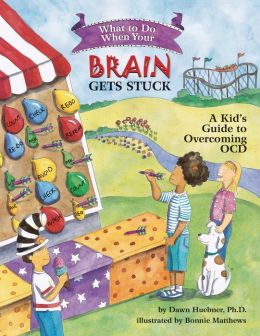
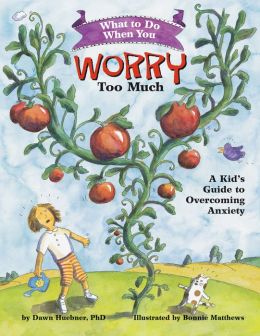
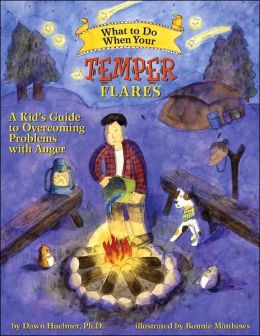
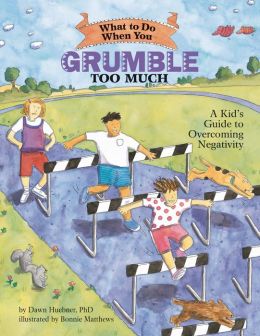
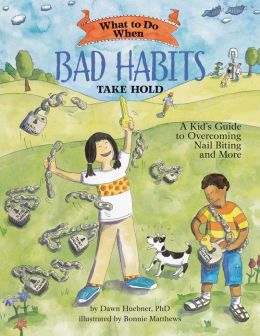
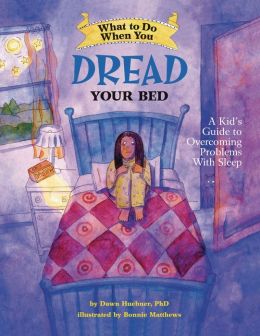
I hope something here can help you with whatever your child and family may be facing. Blessings to you, and remember, none of this is your fault.
Sharing also with Works For Me Wednesday at We Are That Family.

My Peter is a "checker" and a "cleaner" (washing his hands), and both components were getting worse, increasing his stress, my stress, and our family stress. OCD commonly occurs with ADHD and Tourette's Syndrome (Tourette's Syndrome is a verbal and motor tic disorder). Peter has both of these comorbid conditions, all related neurologically.
He is on the lowest dose of Prozac, which is a standard first-line OCD drug, but his weight is now 95 pounds, so the 10 mg dose is not as effective. However, there are no side-effects with this low dose, so before increasing it, we thought therapy was warranted.
It looks like we're moving on to plan B, though, which I'll get to in a minute. They gave Peter an intern, most likely because of our inferior insurance. OCD can worsen if a patient receives poor therapy, and though I was aware of this, I decided to try the intern out for a brief time and see what happened.
At the first formal, non-paperwork visit, she conducted a get-to-know-you session in which she revealed without shame that she's living with her fiance. I don't expect non-Christians to act like Christians, and I totally understand why she didn't think her lifestyle was cause for shame.
OCD has a religious distortion component for some people. This means that if they encounter an immoral situation or immoral person, they panic and feel they're going to be corrupted. In his case, he has to keep checking with me, "Am I in sin? Am I in sin?" If I don't answer quickly that he's fine, he comes unglued.
A "checking" behavior is also repeatedly checking to see if the stove burners are off, or if the front door is locked. Peter's checking behaviors all revolve around asking me for assurance. If I don't answer, as I said, he comes unglued. But the more I play a part in his compulsive checking, the worse the condition becomes in his brain. The more he "checks" the more he has to check. The less he checks, the less his brain pressures him to check.
So, OCD therapy must help a child boss back his brain, so he can get the upper hand over it. The voice in the head will still be there telling him to check, but he won't be as bothered - it will lose power over him, without exactly disappearing.
As soon as Peter understood that the therapist was living with her fiance, he shut down and wanted out of there ASAP. Going back will be futile.
Besides, I was not invited into the session (I have my three other children in tow). This made me extremely uncomfortable, and Peter uncomfortable as well, since she was a complete stranger to us. And OCD or not, I don't want him with a worldly counselor.
As soon as he said..."I never want to go back there again."...and told me why, I completely agreed with him.
So, plan B.
Enter Dawn Huebner, Ph.D. The link on her name will take you to her author page.
I did quite a bit of research before deciding to recommend her books here. They're well received all over the world and translated into many different languages. Countless children and families have been helped by her work. Kids love these books! And parents, too.
She's written several that might help your family, so I'm including all of them here. I'll be ordering a few more myself. Paul has anxiety and milder OCD, and Mary has anxiety and possibly the beginning of OCD - all inherited, unfortunately. These issues start surfacing at 6 to 7 years old - prior to age 7, anxiety is thought to be benign and just a part of childhood.






I hope something here can help you with whatever your child and family may be facing. Blessings to you, and remember, none of this is your fault.
Sharing also with Works For Me Wednesday at We Are That Family.

5 comments:
We are dealing with some anxiety in my eldest about illnesses. We were with friends this weekend and at the end one of the girls got car sick. All he had to hear was that she had thrown up, and he refused to eat dinner and woke me up this morning crying that he was scared. I may have to check into the book about worrying. He is his mother's son. :-P
Fear of throwing up is a common one. My Paul worried for three days about throwing up after Peter's short stomach virus. He washed his reddened, chapped hands more than usual and wouldn't touch anything that Peter touched. Sigh. It gets crazy around here sometime. I am getting the book about worrying too, and about anger management.
Thank you for posting this. My 11 1/2 y/o twins have just this year been diagnosed with OCD. One has more disruptive symptoms than the other. They have both, since small, had difficulty with managing frustration/temper meltdowns (more than a typical child). They are also on low doses of prozac which has not eliminated the symptoms but has taken the edge off a bit. The problem is my one boy doesn't like/trust the counselor...even though it's a "Christian" place...not sure whether to press on with him or try someone else or just work with it ourselves with things like these books.... Thanks again. it's nice to not feel alone.
Dear Wiggly, It is so hard to know what to do, and knowing I'm not alone helps me too. The meltdowns may be due to the stress that OCD can cause for a person. Their daily life is just not what most of us can understand. My heart grieves for what these kids (and adults) go through. It's a horrible condition, but God can work through it and bring glory to the situation, I truly believe. Bless you and thank you for commenting.
Thanks for sharing these books. I am going to check these out. We deal with anxiety and ADHD so these books sound like something we could use.
We are slowly learning that there may be more than the anxiety with one and ADHD with another. So at the moment we could use all the help we can get and I too, am wanting something positive and something that will not clash with our religious views and homeschooling lifestyle.
Such fun!
Post a Comment